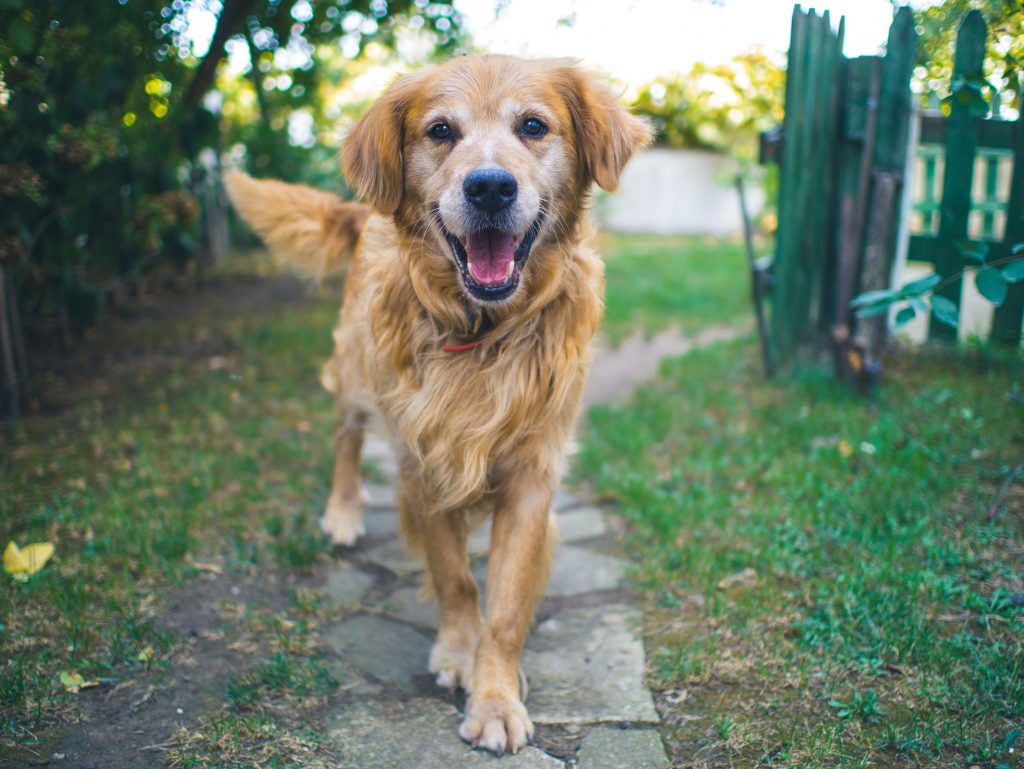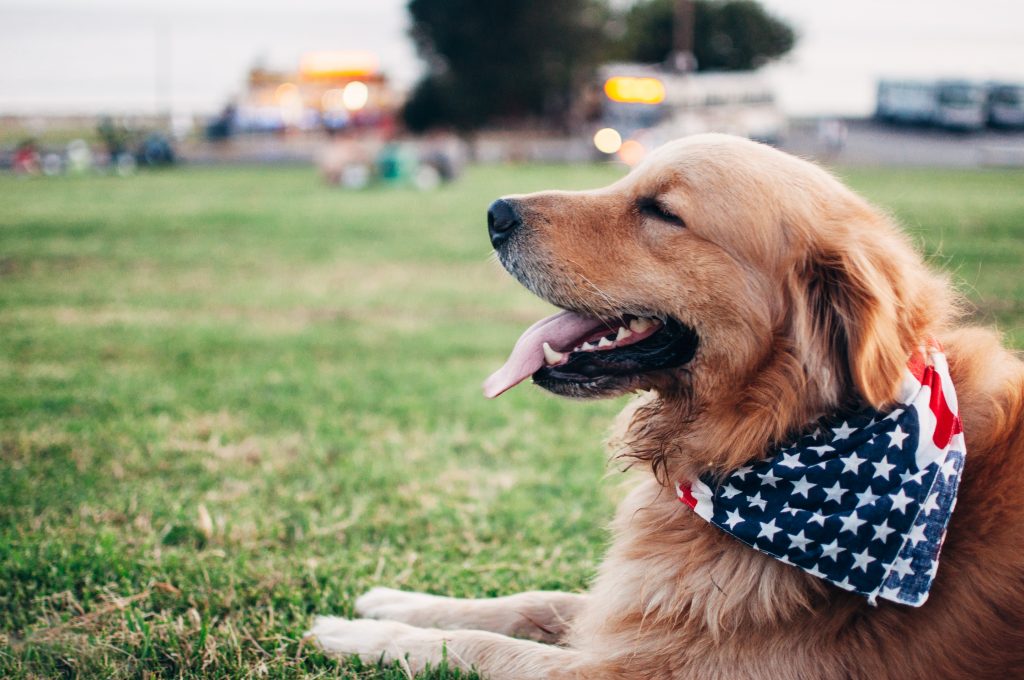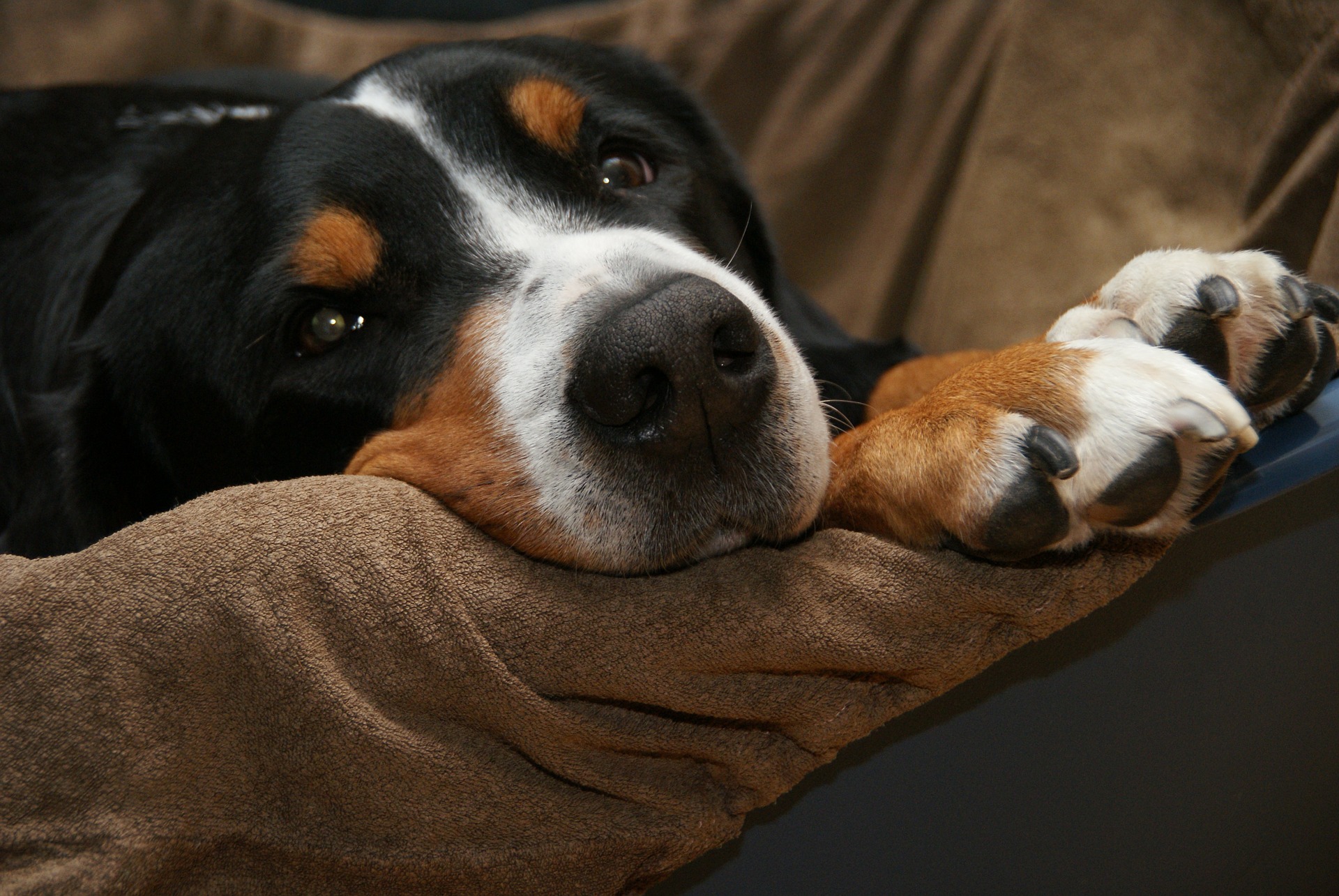House training should be considered from day one, whether you have a puppy or an adult dog. House training an adult dog is needed in two cases;
Case one, if you adopted an adult dog, first of all, congrats! You just give this dog a second chance to having a caring family and become a life companion one more time, You will need to let your new canine companion get used to your house rule.
The other case is that your dog is suddenly started to eliminate indoors. Maybe it is not his usual habit to discharge in the house, but out of the blue, you found him start to do it inside the house without a clear reason!

In both cases, you will need to start house training your dog again if already got potty trained before or teach him the new rules of your place if he is a new member of your family.
Table of Contents
What Makes an Adult Dog to Need Potty Training Again
Sometimes a pet owner will notice that his dog started to urinate or defecate in the house, especially at specific locations. Keep in mind that the spot your dog chose is related to the reason or the cause of why he started to do it in the first place, e.g sometimes dogs may use rooms that are not used frequently or furniture with strong scents of people or other animals.
The location is not the only thing that can make a dog start soiling indoors, on many occasions, your dog may start this bad habit because of certain conditions, and like the location can indicate the reason, these conditions could help you in finding the cause of why your dog is eliminating indoors.
Some dogs would eliminate inside their houses out of being bored, being left alone for a long period of time, some might eliminate when he gets excited or while being petting.
In other cases, dogs may don’t get enough opportunities to eliminate outdoors or during his previous training, he learned to use a pad or litter box in the house.
House Training an Adult Dog: Exclude Medical Problems

You need to be sure that your dog has no medical problems before assuming that he needs to be trained to stop this unwanted action. Visit your veterinarian and dismiss any medical cause that may be the reason for your dog to eliminate indoors.
Medical problems that may cause eliminating indoors:
There are plenty of medical reasons that may lead your pooch for such a bad act. Rule out all these causes first before jumping to other conclusions and spend a lot of time that eventually will go in vain if it is because of a medical issue.
Gastrointestinal Disturbance:
If a dog was going okay after being house trained and suddenly starts to defecate indoors and his stool is kind of loose or diarrhea, this means that it might have a gastrointestinal disturbance.
Medical Prescriptions:
In many cases, medications cause some side effects that make a dog urinate a lot or defecate. If your dog is taking any medications, call your vet and make sure that the remedy your dog is taking has no side effects that are related to eliminating.
Diet Adjustment:
Any changes that occur to your dog’s diet is a potential reason why your dog is suddenly pooping and peeing everywhere. If you changed the brand of food or trying a new type, you should keep in mind that it may be the reason. Also, changing your dog’s diet may need a change in the number of times your dog needs to go out to discharge.
The new served food may increase the stool or urine amount, thus, more rounds outside will be needed to get this excess amount out in the right place.
“Leaks”
Ever heard of incontinence? It is a medical condition that is responsible for void or leaking urine without your dog even notice he is doing that, It even happens while dogs are asleep. There are a number of reasons for incontinence to occur; weak anal sphincter, hormone-related issues after removing your dog’s ovaries( if you have a female dog of course), neurological problems or urinary tract infection.
Age Factor:
Older dogs( ten years or older) who were trained before may start to leak or discharge the whole thing indoors due to overall weakness, bladder control, or loss of physical control.
House Training an Adult Dog: Behavioral Issues

Lack of house training or incomplete training may be one of the influential reasons of why your dog is soiling inside your house.
For a dog, Living outside or coming with an unknown history is considered as never been trained before. If you got an adult dog you better start with teaching him everything from the start as if he is a puppy that doesn’t know a thing about manners and behaviors.
Surface favoritism
Your dog may grow some affection toward a type of surface he used to eliminate on before. If he used to be trained to eliminate for a period of time on pads or paper, certain surfaces like carpeting, shelter floors or cement or on a blanket in his crate, he may long for this type of surfaces again and TA-DA, an unwanted surprise for us!
Going out uneasiness:
Some dogs will have fear of going outside, so you will find that they eliminate(especially stool) indoors as he would be more vulnerable than when he is urinating.
Due to weather conditions:
If the weather is rainy or cold, your dog may prefer to eliminate inside the house to get away from the bad weather condition.
Marking his territory:
Dogs like to stamp their scent to the place they are living in. Letting other dogs know that this is his territory and the presence of him at that place. Usually, you will find your dog urinating vertically on the furniture to scent mark the place.
Separation Anxiety
Dogs with separation anxiety tend to defecate and urinate in the house along with being destructive and with non-stop barking when they are left alone. You will notice that she is nervous or anxious when you are preparing yourself to leave or it became worse when leaving her alone( observe your dog, to know if she has any signs of anxiety after you leave her alone).
House Training an Adult Dog: Dealing with Behavioral Issues
Dogs don’t like to eliminate in the place they are living in, limit your dog access in the house when you get him and take him out frequently to eliminate. Reward your pooch every time he discharges outside. keep rewarding a habit for some time until the deficiency of the training is gone for good.
Adopted dogs may don’t have house training before so you need to make sure to do it from the first day you get your dog to your house.
Helpful Tips
If you put food for your dog and leave him to eat freely from it, you will have to stop that. Keep a schedule for feeding and remove any additional snacks in between. Stick to the schedule you put.
Consider taking your dog out more frequently, as it may be one of the factors he started to eliminate indoors. Take him first thing in the morning, before leaving him alone, and before bedtime.
Keep an eye for your dog and don’t leave him out of your sight. If this is a hard task for you, you may start considering using a crate. Check How to crate train a dog: The ultimate guide for more information about crate training.
If you found your dog urinating in the house don’t use shouting or yelling, just clap loudly to make her stop peeing and take her outside immediately. Clean the mess with enzymatic cleaner and keep the positive act!
Try to avoid using paper training with your dog as it is one of the factors that sometimes dogs return to eliminate indoors. Keep the house a No-No place for discharging entirely.
If your dog has a surface preference, don’t worry you can change that. Sometimes, there are dogs that refuse to eliminate on grass or dirt and favor to do it on concrete or pavement. You can start to put a little amount of grass on the pavement and gradually increases the amount until your dog is comfortable with it and then try to take him to a grassy area.
Usually, small dogs breed or short coated breeds are the ones who get frustrated with bad weather and don’t want to eliminate outside because of that. Try to minimize the effect of bad weather on your dog by dressing your dog when he goes outside and protect his paws so he would be comfortable.
Here are some tips on housebreaking adult dog and how to prevent adult dog peeing in the house, for more reads about house training an adult dog, check House Training an Older Dog: Is it Really This Hard?

